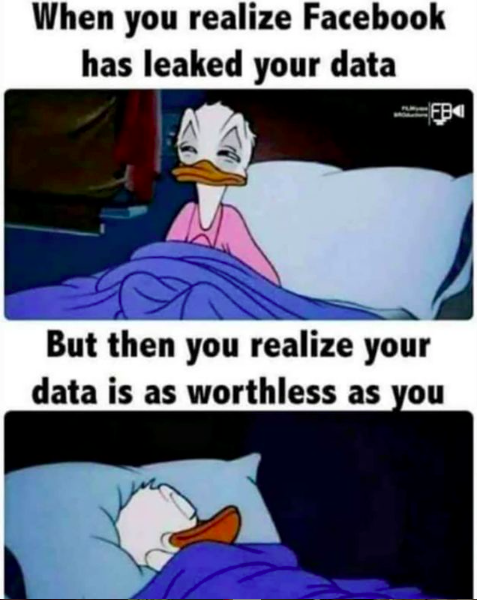In my post last week, I wrote that simply deleting Whatsapp and moving to Telegram or Signal wasn’t going to make much of a difference to your privacy. There are so many other ways that Facebook collects data from you, your phone and your computer:
The subtext of the article was also that you need to think about your privacy as a whole, not just limited to one app or company.
I won’t pretend that thinking about privacy is straightforward (leave alone appealing), but it’s not impossible either. And since the biggest companies today make money directly or indirectly off your data, it’s worth investing time to understand just how much of your data these companies have, how they get them and how it affects you.
We rest in the fact that we’re just one uninteresting person among hundreds of millions of users of Facebook or Google or Amazon and our particular stream of data isn’t worth much:
But the algorithms that sift through all this data have little to do with the number of people that they draw conclusions for. You could be a nameless, claimless casualty of an incorrect inference that this algorithm makes: Sir Tim Berners-Lee, one of the fathers of the internet, gives one example:
Just think your insurance gets cancelled because you’ve been searching for cancer online too much. But, in fact, you were looking because a friend of a friend had some form of cancer. However, now the system suddenly decides that it’s worth sending you ads about cancer then also it can decide whether it’s worth increasing your insurance premiums, maybe blocking you from taking on a new insurance policy because they’re worried that you might have an existing condition.
– Sir Tim Berners-Lee: The marketing impact of artificial intelligence
Lately with contract tracing apps mandated by governments, you may not have a choice in data being collected about you. Even if there’s location data about millions of people being collected daily, once the central algorithm identifies that someone near you tested positive, you will almost certainly be required to subject yourself to tests, typically at your expense, and be barred from travel until you receive your results.
But today’s geo-location tech can’t identify that the person who tested positive was enclosed in a changing room in a store while you were browsing a clothes rack outside, both masked at the time.
The result? You being inconvenienced unnecessarily in the name of safety because of incorrect conclusions made from data you shared without choice.
Sticking with real life, as an ordinary person among millions of fellow citizens, you may be arrested because surveillance cameras and the associated facial recognition technology misidentified you. This has happened – repeatedly:
The identifications justified Talley’s detention, even though he claimed he had been at work as a financial adviser for Transamerica Capital when the May robbery took place. Talley said he was held for nearly two months in a maximum security pod and was released only after his public defender obtained his employer’s surveillance records. In a time-stamped audio recording from 11:12 a.m. on the day of the May robbery, Talley could be heard at his desk trying to sell mutual funds to a potential client.
How a Facial Recognition Mismatch Can Ruin Your Life
The article from which I’ve taken the quote is an detailed dismal tale of how the person, wrongly identified, had his life turned upside down trying to prove his innocence while struggling to live his life alongside.
The burden of proof, previously solely on prosecutors, has now shifted to an algorithm that doesn’t have to explain itself – another example of how involuntary loss of privacy, this time through surveillance cameras – severely affected an otherwise unremarkable person.
Whether on the Internet or in the real world, it’s easy for your data to be turned against you, even if inadvertently or accidentally. This has nothing to do with how well-known you are, or if someone wants do get back at you.
In this new world, it’s important for you, me, our families – everyone – to understand our loss of privacy and then form our own plan to reclaim it.


